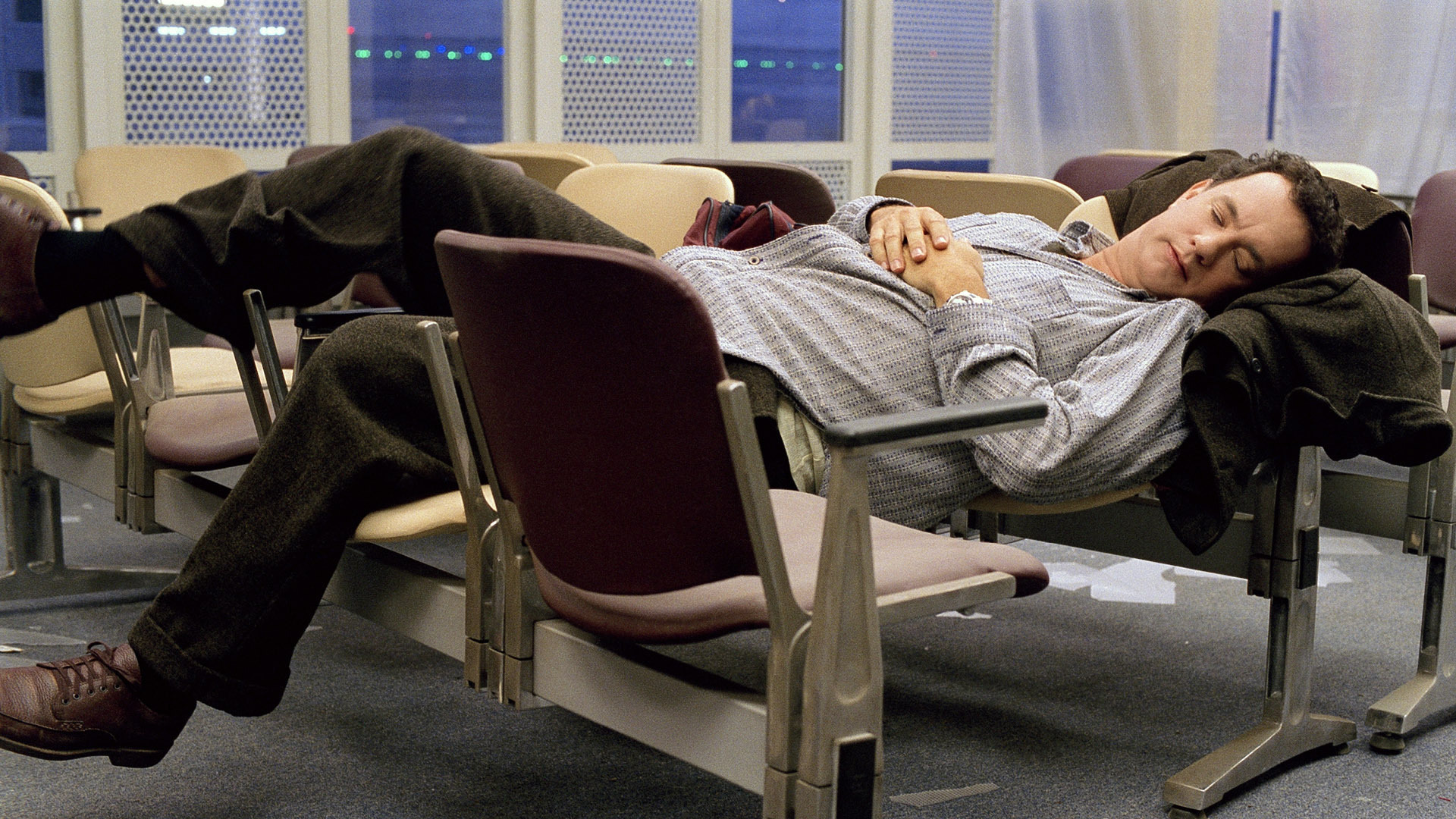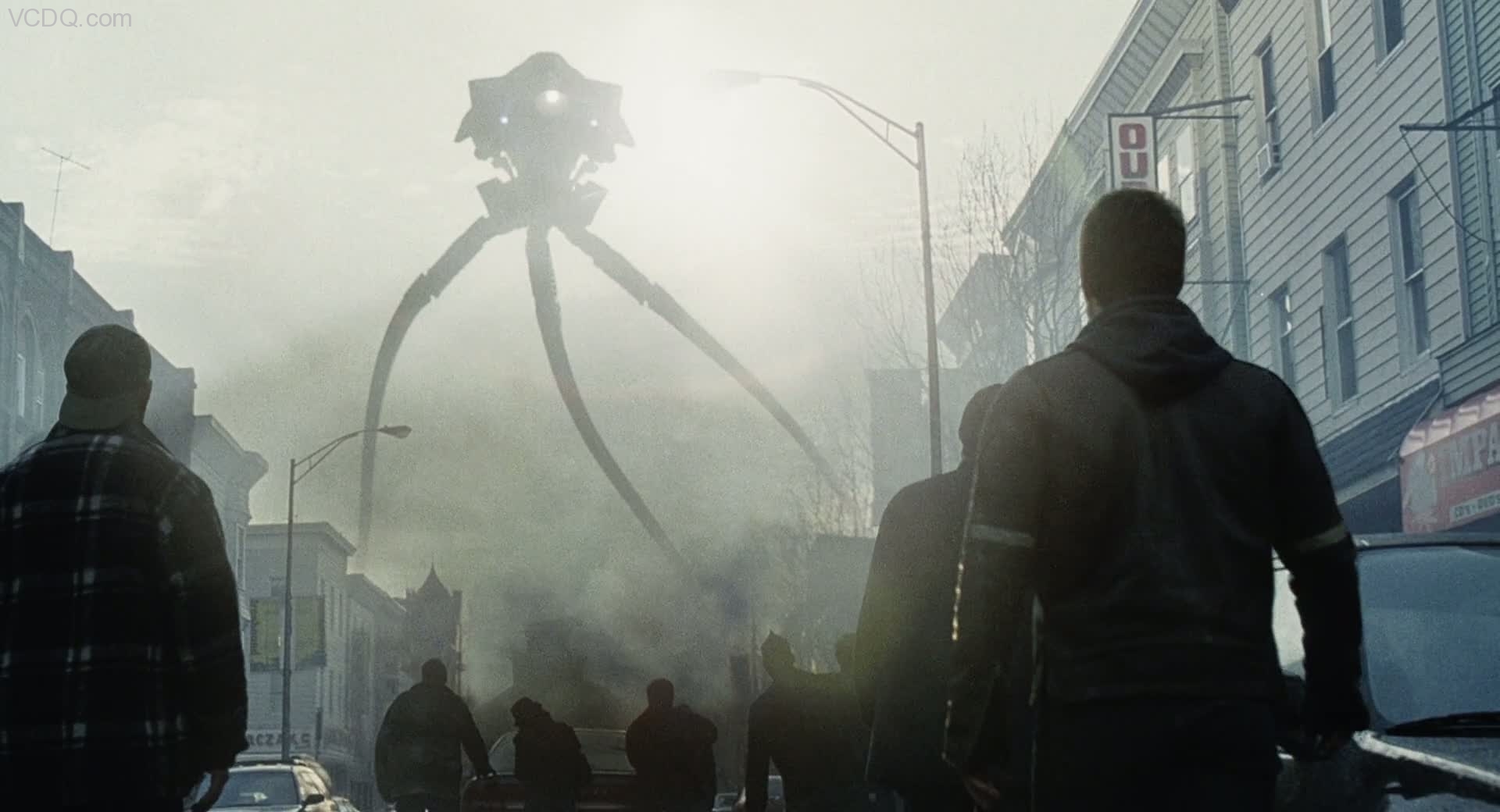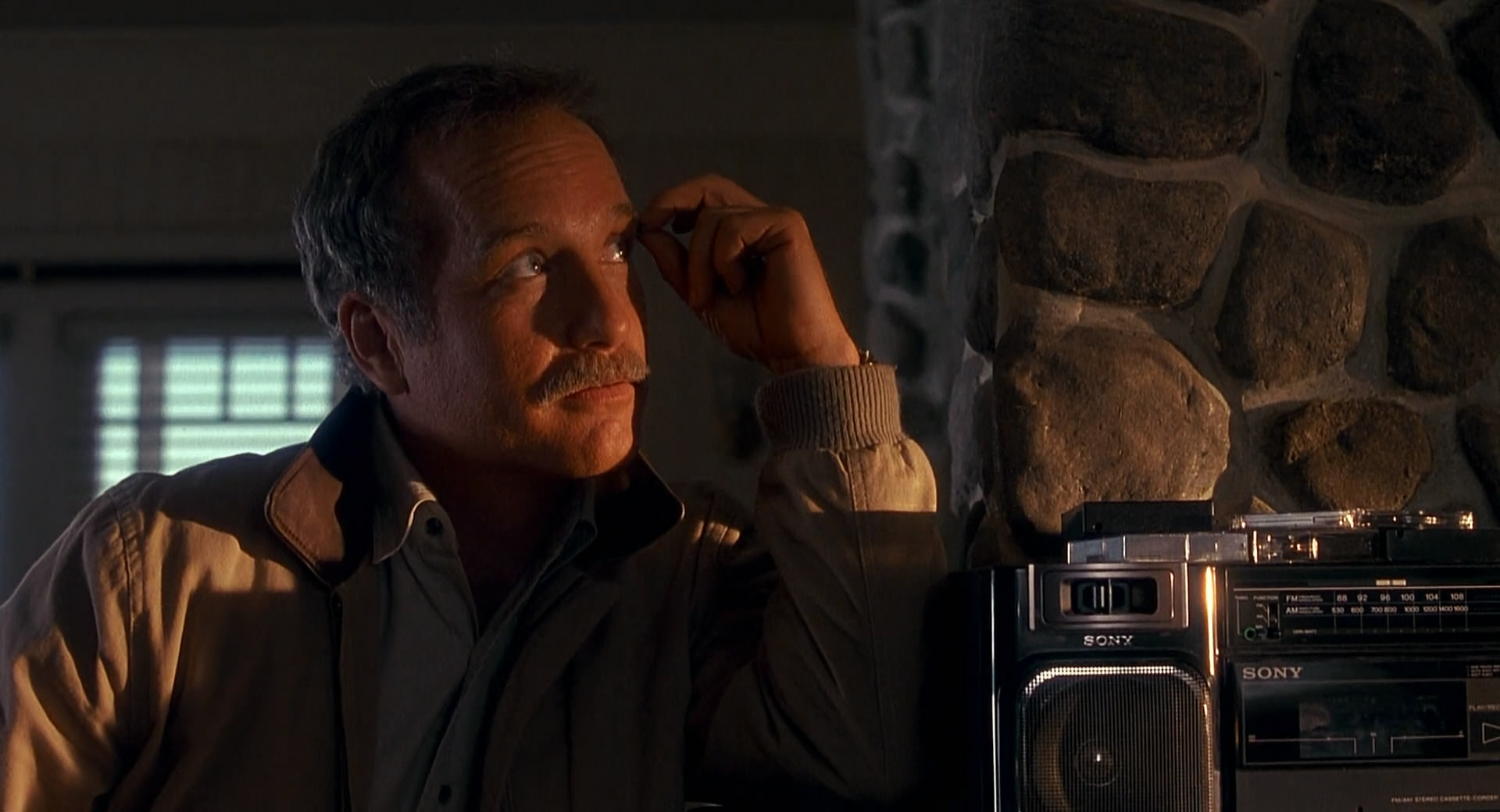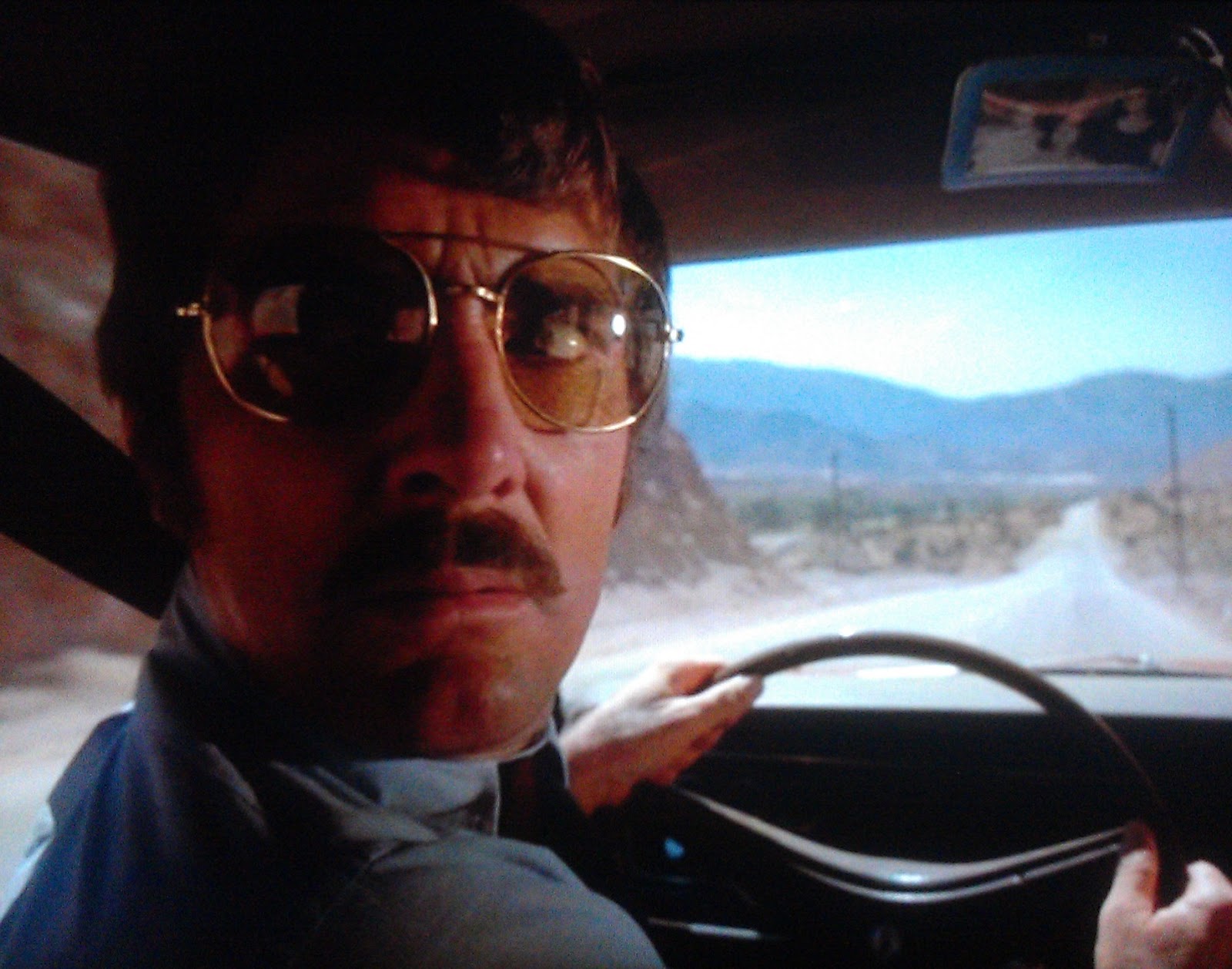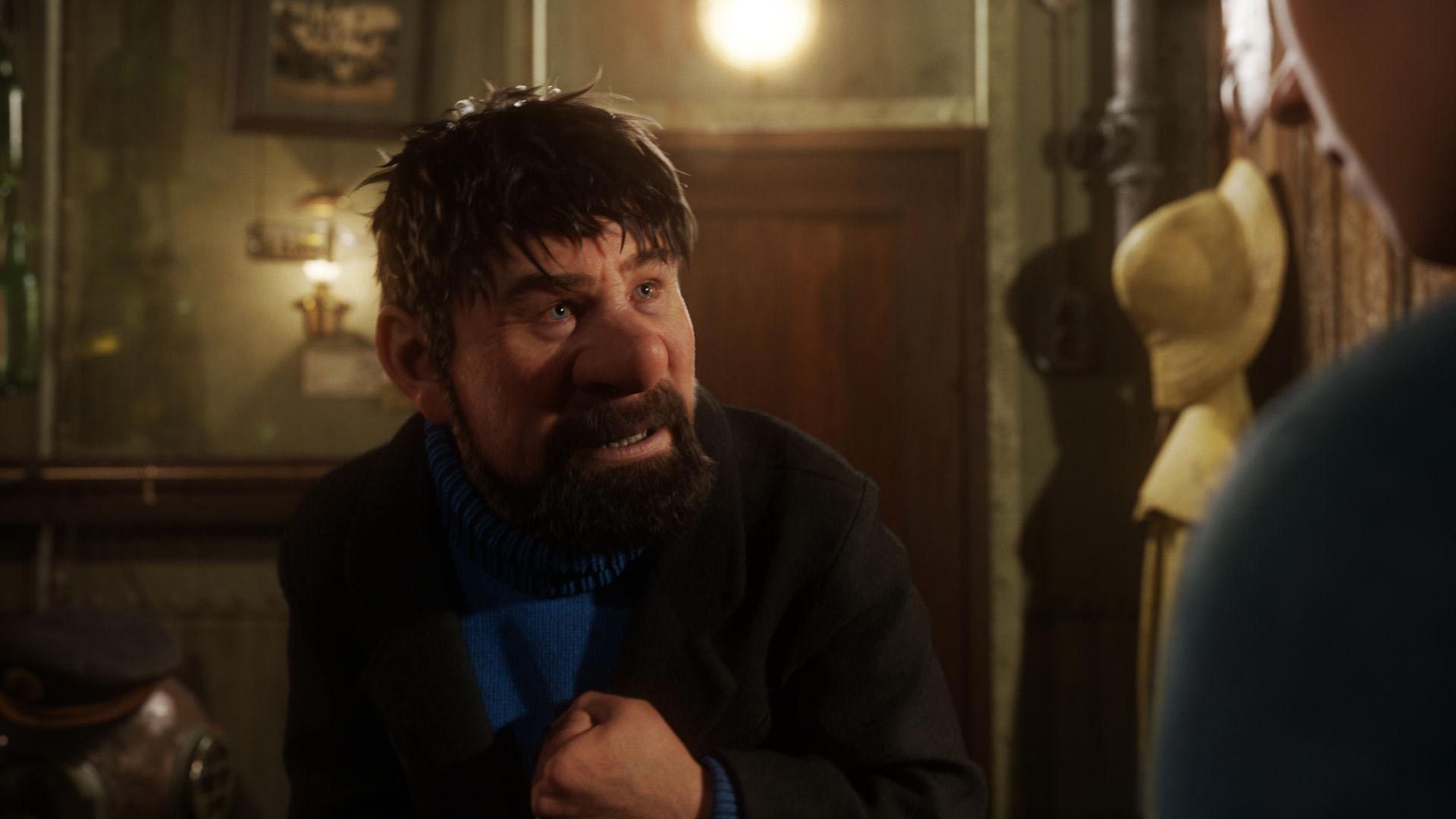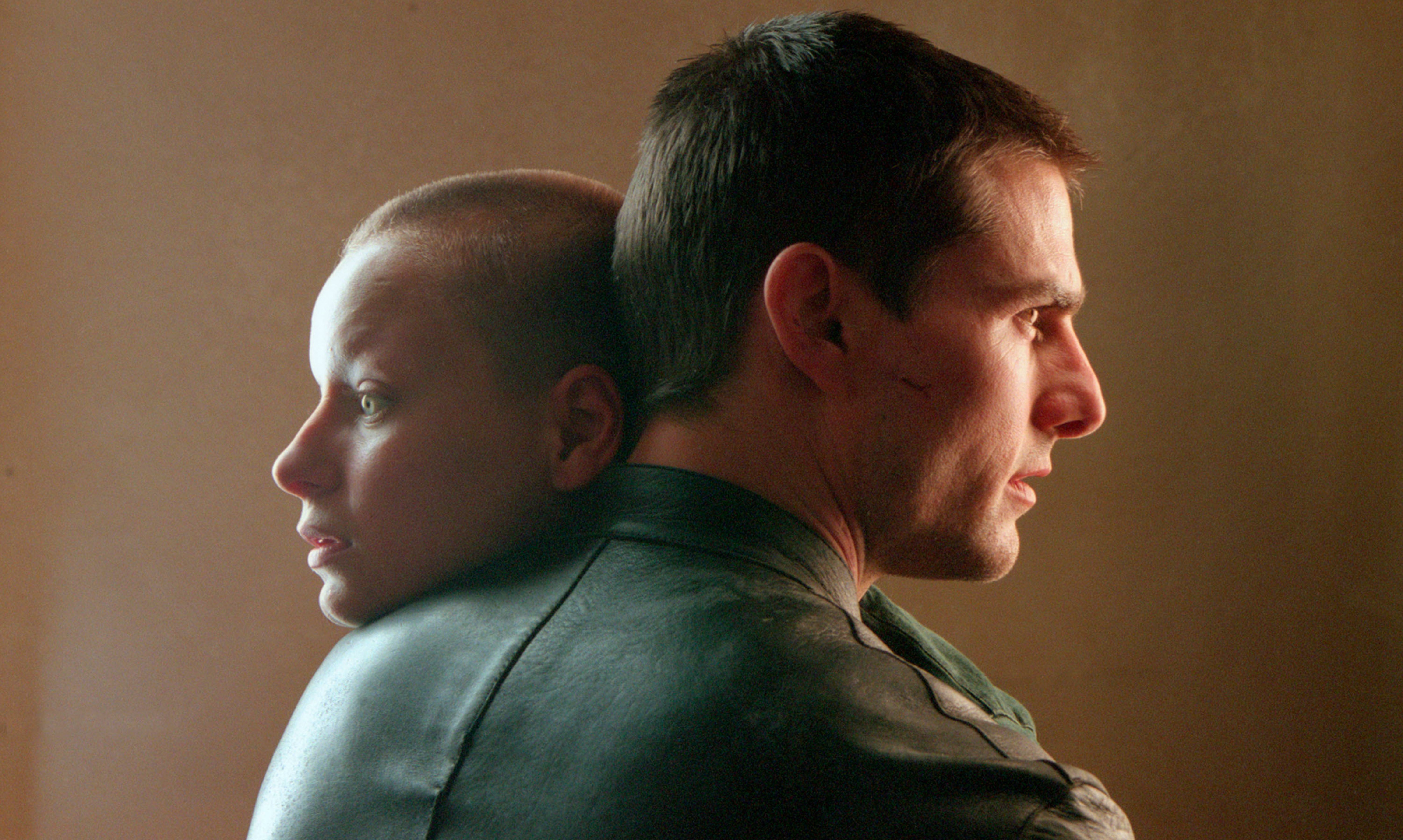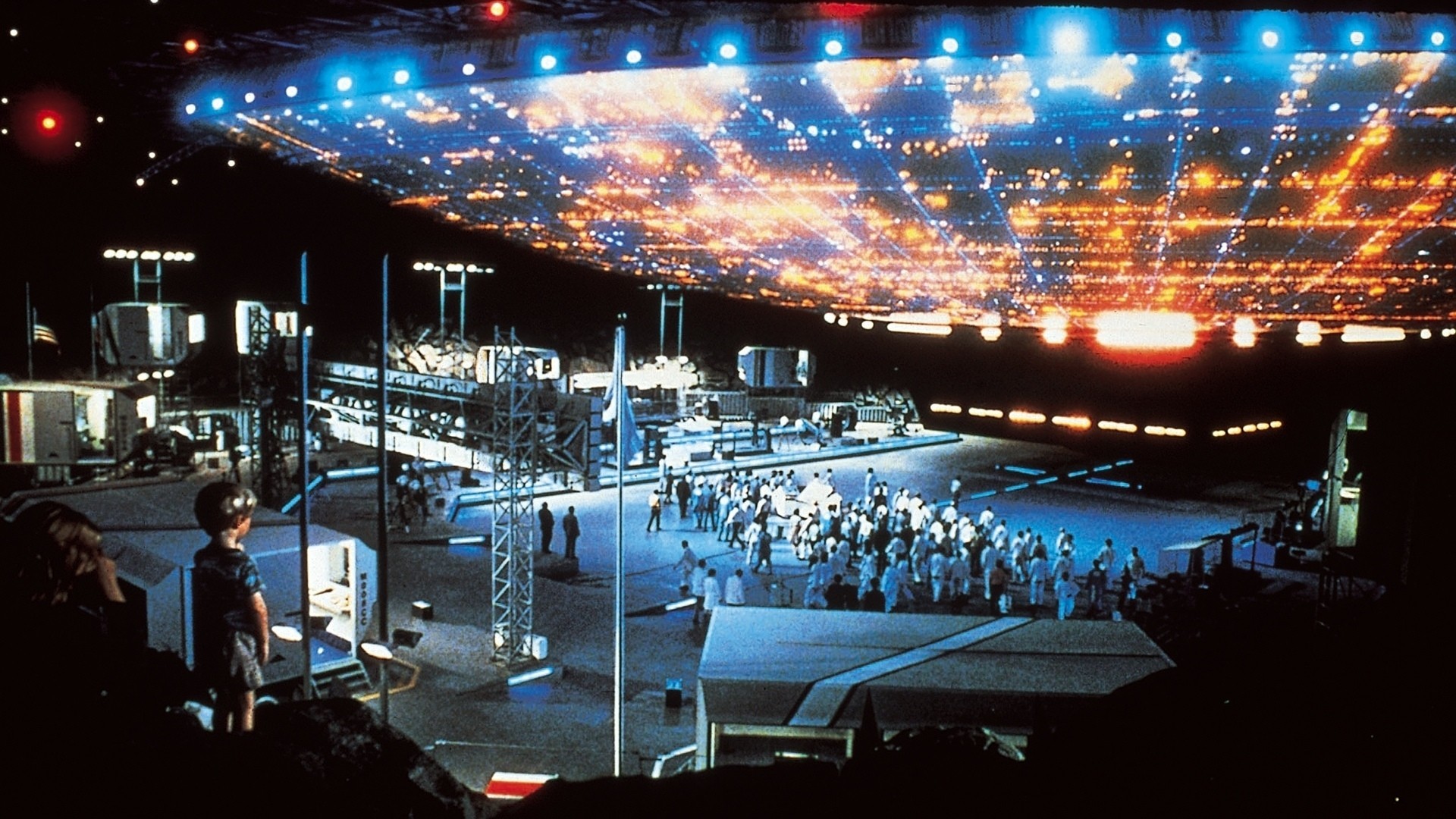Bridge of Spies is out now in cinemas, so we thought we’d take on the easy task of ranking all 29 films directed by Steven Spielberg (we lied – it was really, really difficult). With only a few genuine clunkers under his belt, and no shortage of masterpieces, this list is a good way of getting into the back catalogue of the world’s most successful movie director. Some of our favourite films of all time are included; we can’t wait for you to watch them all too.
29. Indiana Jones and the Kingdom of the Crystal Skull (2008)
Can you really blame us for ranking Indy’s fourth movie so low? Yes, we can hear you: Kingdom of the Crystal Skull isn’t that bad. We disagree; Indy’s fourth outing lacks the magic that lit up each frame of the original trilogy, coasting along on the weakness of a screenplay not bothered with furthering the mythos of this cinematic institution. But right up to the part where Cate Blanchett is mind-destroyed by a pissed-off little alien, it’s merely rubbish: the instant we witness a UFO flying up out of the jungle and into the sky, it becomes offensively bad.
28. 1941 (1979)
At least Spielberg got one of his worst films out the gate early. The greatest crime 1941 commits is attempting comedy when every gag, joke or remark it makes is desperately unfunny. While there’s some lovely work with dioramas and models to give the action that very particular Spielberg feel, it fails as either satire or slapstick.
27. The Lost World: Jurassic Park (1997)
Even Spielberg himself admits that he ‘checked out’ while filming The Lost World, the follow-up to 1993’s huge hit Jurassic Park. The tremendous trailer set-piece aside, this painfully lagging sequel does nothing to inspire the same kind of awe, terror or amusement as its predecessor. And a note to Colin Trevorrow for the next Jurassic World: do not include raptors being defeated by a 10 year-old gymnast.
26. Hook (1991)
Hook will always get off the erm, hook, lightly: it’s a movie lots of us grew up watching and loving, and it stars Robin Williams in perhaps his most well-suited role. But add some of the most brain-dead schmaltz of the directors’ career with shots where the camera visibly wobbles from on-screen explosions – a shocking neglect that is entirely at odds with practically every other film Spielberg made – and the movie we have so much nostalgia for is suddenly riddled with holes.
25. The Terminal (2004)
The Terminal isn’t a bad movie, per se – it just isn’t a great one. Wasting its terrific premise on unbelievable, rushed and neglected storylines – and product placement on an unprecedented scale – it never feels like Spielberg was ever truly invested in this movie. Perhaps Tom Hanks should’ve left that airport right at the start of the film, and save us from our boredom.
24. War Horse (2011)
Although it revels in Spielbergian wonder, War Horse lacks the necessary darkness that lies just under the surface of the director’s other family-oriented work. But the movie’s main problem is relying on Joey, our titular war horse, to be the emotional focal point of the entire film – despite looking, as far as the untrained regular cinemagoer is concerned, completely emotionless. This really doesn’t help the picture’s episodic structure either, leaving us with no emotional anchor to grasp onto.
23. War of the Worlds (2005)
Spielberg’s War of the Worlds is painfully aware of its allegory, and is perhaps the ultimate veiled post-9/11 film yet made. But despite its layers of meaning, the picture really loses its pace roughly two-thirds of the way in – meaning it doesn’t function as a socio-political thriller the way it clearly wants to. There are, however, some truly chilling set designs as the alien warmongers begin using us as fertiliser. Yuck.
22. Always (1989)
One of the director’s most maligned movies is 1989’s Always. Even though it admittedly devolves into syrup during the climax, Spielberg’s craftsmanship nonetheless turns sentimentality – his most recognisable trait – into an artform unto itself, making the rift between the ghost of Richard Dreyfuss and the very-much-alive Holly Hunter feel all that more real and tender.
21. Amistad (1997)
This stately sociopolitical epic from 1997 is one of the lesser-known jewels in the filmmaker’s crown. For the most part, Amistad is slow-going in its magisterial pacing, and there are perhaps a few too many characters that pop their head into the tale along the way; but it’s a true story that’s almost too incredible to be true, and it features a wily, young Matthew McConaughey on fine form, and Anthony Hopkins giving a brief, if absolutely unforgettable, performance.
20. Duel (1971)
Duel, Steven Spielberg’s first feature film – originally aired as a TV movie – is an exercise in stone-cold tension. Its plot is so economic, it fundamentally plays like a one-man show from star Dennis Weaver, who’s on the run when a juggernaut begins to hunt him for no real good reason. It’s an absolutely terrific thriller, and sits perfectly as the filmmaker’s debut. It also serves as a very valid warning: don’t piss off truck drivers.
19. Empire of the Sun (1987)
One of the most haunting depictions of innocence lost in wartime, Empire of the Sun has an incredible child performance from Christian Bale as Jim at its centre, who is separated from his parents in Japan in 1941. Bale is a beacon of naive optimism in the face of huge oppression, threatened to be broken forever – not by the evil he faces every day, but by the apathy. Moments that blend eeriness and beauty – like when Jim mistakes the flash of the Nagasaki atom bomb for souls rising up to Heaven – confirm this as one of the most ambitious and epic war flicks ever made.
18. The Color Purple (1985)
By the mid-eighties, Spielberg had one of the finest runs of any director’s back catalogue – all of them special effects-driven blockbusters. What he did next, however, was make The Color Purple, a ravishing period drama that starred a young Whoopi Goldberg in a breakout role as Celie, that dealt with the kind of heavy themes the director wouldn’t tackle again for nearly a decade. The Color Purple is also the first movie where Spielberg dives headfirst into his divisive brand of sentimentality – but it’s all grounded by Whoopi Goldberg, who gives the defining performance of her career, a role complemented by Danny Glover’s Albert, a misogynistic tyrant whose comeuppance is gradual, but all the more satisfying for it.
17. Bridge of Spies (2015)
Spielberg reunites with Tom Hanks for Bridge of Spies, the long-gestating Cold War thriller that concerns the exchange of two spies – one Russian, one American – during the conflict’s uneasiest period. Mark Rylance has received massive acclaim for his brief supporting role as Rudolf Abel, the tight-lipped Soviet operative who strikes a delightful clash of colours with Hanks’ James B. Donovan, a lawyer attempting to make the trade in the heart of East Germany. Although the story only rightfully gets going when Donovan makes the leap into unknown foreign territory, Spielberg builds tension by placing layer upon layer; the result is a terrific period piece that has as much in common with the fights of today than those of the late ’50s. It’s too soon to digest all the secrets that Bridge of Spies may still hold, but what is certain is that you can’t beat the collaboration of Spielberg and Hanks – both adept at portraying the everyman thrown into extraordinary situations.
16. The Adventures of Tintin: The Secret of The Unicorn (2011)
When Spielberg came out with Tintin, it felt like an apology for the sins of Kingdom of the Crystal Skull; even though it was entirely computer-generated (a first for the director), it rekindled the same adventuring spirit of his older Indiana Jones flicks. A burning passion for intricately-wrought set pieces and a flair for casting his roles perfectly (Jamie Bell endears with Tintin, and Andy Serkis repulses with Captain Haddock), makes this underlooked corker an unexpected treat for fans of younger Spielberg.
15. Lincoln (2012)
By far the director’s most contemplative, dense film (mirrored in its luxurious pacing), but far, far more than just a vehicle for Daniel Day Lewis’ breathtaking, Oscar-winning lead role, Lincoln gets its hooks into you by stimulating the head, and slowly works its way to your heart. It remains one of those few films where the tears feel entirely earned; it’s a prestige flick that’s generous in its depiction of the American president, while also exploring his faults as a family man. But more than that, it leaves its central character frequently, when it needs to, for Lincoln isn’t really about the title character at all – and that is its greatest success.
14. The Sugarland Express (1974)
As the first picture of Spielberg’s that was released in cinemas, The Sugarland Express is a terrific showcase for his knack of building a tight story and filling it with memorable characters. Essentially a re-spin of Bonnie and Clyde, The Sugarland Express holds its own as a very adult, hugely gripping, and overarchingly funny chase movie.
13. Indiana Jones and the Temple of Doom (1984)
Maligned for many reasons, The Temple of Doom may be the weakest entry in the original Indiana Jones trilogy – and when talking about the masterpieces the other two movies are, it’s almost pointless to argue with that. But Temple of Doom is a fantastic thrill-ride, with one of the best non-stop action sequences of all time in the film’s final third. Whatever audiences felt dragged this particular entry down, whether it be a darker, more grisly tone to the other two, or perceived racism and sexism – at most, there’s a huge lack of sensitivity in both areas, an admitted fault in the movie and of Spielberg’s – Temple of Doom remains an excellent adventure movie that holds brilliantly against the other two.
12. A.I. Artificial Intelligence (2001)
Tonally, A.I. Artificial Intelligence is the furthest from anything Spielberg has ever done, and at the same time, the closest to his intentions. Set in a flooded future and following the journey of David, a ‘mecha’ made to look like a young boy, we zip from crushing contemplations on the nature of love both physical and intangible, to almost damning introspections on the human condition. The film’s extraordinary end sequence – heavily misunderstood on release – encapsulates this wonderful, rare, one-off masterwork; a haunting, devastating, and deeply, effortlessly moving opus that saw the director reaching for his highest, and noblest, goals.
11. Saving Private Ryan (1998)
If you’re going to move your story along with almost nothing but set pieces, you could do far worse than use 1998’s Saving Private Ryan as a template – the best set piece of which is the incredible opening scene at Omaha beach, famous for its refreshingly realistic take on warfare. But take even that away, and you’ll realise that Saving Private Ryan is a quietly moving, no holds-barred depiction of WWII with all the typical Hollywood sheen stripped away – and the young, frightened men in the middle of it.
10. Minority Report (2002)
Philip K. Dick is a the writer whose work keeps getting adapted for the screen. His vision, clearly, is one that still sticks with readers – and when it comes to big screen adaptations, some of those visions burn brighter than ever. Spielberg’s Minority Report, set in a future where murder is all but eradicated – thanks to a new crime force that can predict events yet to occur – features Tom Cruise as John Anderton, chief of Precrime. But one day, he finds himself framed for a murder he has yet to commit: Spielberg’s world-building has never been better, and his humour here is blacker than it’s ever been. A few bottomless plot holes and goofs aside, Minority Report is a vessel for a charged, brilliantly paranoid performance from Cruise, and boasts a complex perspective on self-determination and motivation that’s stayed with us ever since.
9. Munich (2005)
Neglected somewhat on release, Spielberg’s most underlooked masterpiece is Munich. In light of recent events, it’s a film that’s sadly more relevant now than ever before. Perhaps the movie’s lukewarm reception from critics and audiences is because it boasted a level of complexity, both in morality and in storytelling, that we hadn’t seen from the director before; in bringing his old-school craftsmanship to a tale as multi-headed as a hydra, Munich stands as strongly in its field of murky, intellectual war thrillers like The Battle of Algiers. (Yes, it’s really that good.) Munich’s greatest achievement, however, isn’t that it glorifies death, but that it never shies away from the hideousness of it – something Spielberg is keen not to gloss over.
8. Indiana Jones and the Last Crusade (1989)
Now that’s how you cap a trilogy. In having the genius move of bringing Indiana’s dad into the frame, played by none other than Sean Connery, an electric chemistry between the two forms as the emotional core of this superb adventure, which takes the intrepid archaeologist from Venice, Germany, and Jordan. If it feels a tad episodic, that only works in favour for the film, which is based on serials of old – and its most ingenious segment is the prologue. As a young adolescent (played by River Phoenix), for the first time we get a feel for who Indiana actually is – but retaining enough mystery to keep this action hero as mythic as he’s ever been.
7. Catch Me If You Can (2002)
On first viewing, Catch Me If You Can comes across as a hugely entertaining romp, bolstered by endlessly charming performances from Leonardo DiCaprio and Tom Hanks. On second, third, fourth and more viewings, it reveals itself to have immaculate structure, design and vision during each and every frame: it’s one of the director’s most sustained triumphs of tone, and ranks as a chase movie that’s not really about the chase, but about the character. Whether you lose yourself in an exciting fake life, or live one that’s almost predestined in its mundaneness, this film makes one thing clear: you’ll still be alone, and all that’s left is the chase to make you feel alive. And you may as well dress it in beautiful sixties-period coolness, too.
6. Close Encounters of the Third Kind (1977)
Close Encounters of the Third Kind was a huge gamble. Before 1977, science fiction was still firmly stuck in B-movie territory, despite the odd arty success like 2001: A Space Odyssey or Solaris. Released the same year, Star Wars would ignite the genre as the destination for top-tier popcorn entertainment – but Spielberg’s Close Encounters used its tale of obsession and awe to show all of us how tiny, yet somehow still important, we are in the grand scheme of the universe. Richard Dreyfuss as Roy, slowly eroding in the wake of a mystery and motivation he can’t understand, was also a performance for the ages; looking back, it’s nearly impossible to see how Close Encounters could have ever been a gamble.
5. Raiders of the Lost Ark (1981)
When describing Raiders of the Lost Ark, it would be almost enough to just say ‘greatest adventure movie ever made’ and leave it at that – but there’s a word count to fill. From the moment a boulder chases Indiana Jones out of a Peruvian temple, through an unbelievable chase sequence that sees our hero flip between horse, car and van as various modes of transport, and right up to the moment the heads of Nazi officers melt and explode, Raiders is a peerless thrill ride, and blockbuster storytelling at its purest – an absolute triumph of excitement-incitement that kickstarted a brilliant trilogy, and brought the stupidly charismatic Harrison Ford even further into the limelight. We’ll say it once more: Greatest adventure movie ever made.
4. Schindler’s List (1993)
Schindler’s List isn’t Spielberg’s film. Or rather, it doesn’t belong to him; it belongs to the millions of Jews who suffered in the years of WWII, or anyone who has been oppressed through the centuries, and the director’s complete committal to his subjects bleeds apparent in every monochromatic frame. The film is almost overwhelming when showing us the violence we can do to one another, and certainly unbearable when its figures are at their lowest moral level – but ultimately, the feeling that runs through Schindler’s List is that of triumph. Liam Neeson’s Schindler may come from a prestigious background, and to base a prestige picture about the horrors of the holocaust with him as the lead may seem disingenious. But on viewing, it’s clear that the film isn’t about him – in just the same way the film doesn’t belong to Spielberg.
3. Jaws (1975)
Jaws could so easily have been a one-note creature feature. Instead, Spielberg adapted Peter Benchley’s novel with all the wit and depth it needed to become the classic it was destined to be. It was also the world’s true introduction to Steven Spielberg back in 1975, and as you probably already know, was credited for kickstarting the blockbuster as we know it today. But at its core, Jaws is a simple tale of a great white shark terrorising a small beach town – and the heroic task that three men take on to stop it before it kills again. It’s an absolutely perfect thriller, because this simplicity allows Spielberg to fully achieve what he’s best at: making us feel exactly what he wants us to feel, at precisely the right moment.
2. Jurassic Park (1993)
As a child, some films capture your imagination completely. And when we inevitably grow up, rarely do we enjoy these films as much as we once did – but there are exceptions. Jurassic Park is a movie that spellbinds us even more as adults, for in effect its characters are all reduced to mere children in the presence of the dinosaurs – magnificent beasts that have been resurrected to form the basis of a new theme park. The movie’s tone teeters between awe-inspiring and frightening at every turn, and disaster is something we can all taste the moment we land on Isla Nublar – and it’s because we know, deep down, that man should not meddle with the forces of nature. Superseding that, of course, is watching a T-rex chowing down on some velociraptors. So. Cool.
1. E.T. the Extra-Terrestrial (1982)
Steven Spielberg’s greatest achievement on the screen is 1982’s E.T. the Extra-Terrestrial. An ode to friendship, family, and the dual beauty and darkness of American suburbia, E.T. transcends its cute and cuddly buddy formula to reveal some profound truths about childhood – and the loss of that truth every time we grow up a little. For one boy, Elliott (a superbly-cast Henry Thomas), childhood gets a little more interesting when he finds an adorable alien in his back yard; keeping his newfound friend from his mother – and the interest of the FBI – are just some of the obstacles that face him when attempting to get E.T. back home. But during that time, a bond forms between the two that goes beyond mere words, meaning that eventually saying goodbye will be harder than Elliott ever imagined.
E.T. ranks as one of the greatest science fiction films of all time. A film to show your children; to watch with your family; to admire alone. The top 10 films on this list probably shaped you as a movie fan; for E.T. to sit at the top of that list is no mean feat. Accompanied by John Williams’ triumphal score, we realise during the film’s final shot that all Spielberg ever wanted us to do, in E.T. and all his films, is to just look up in wonder.





